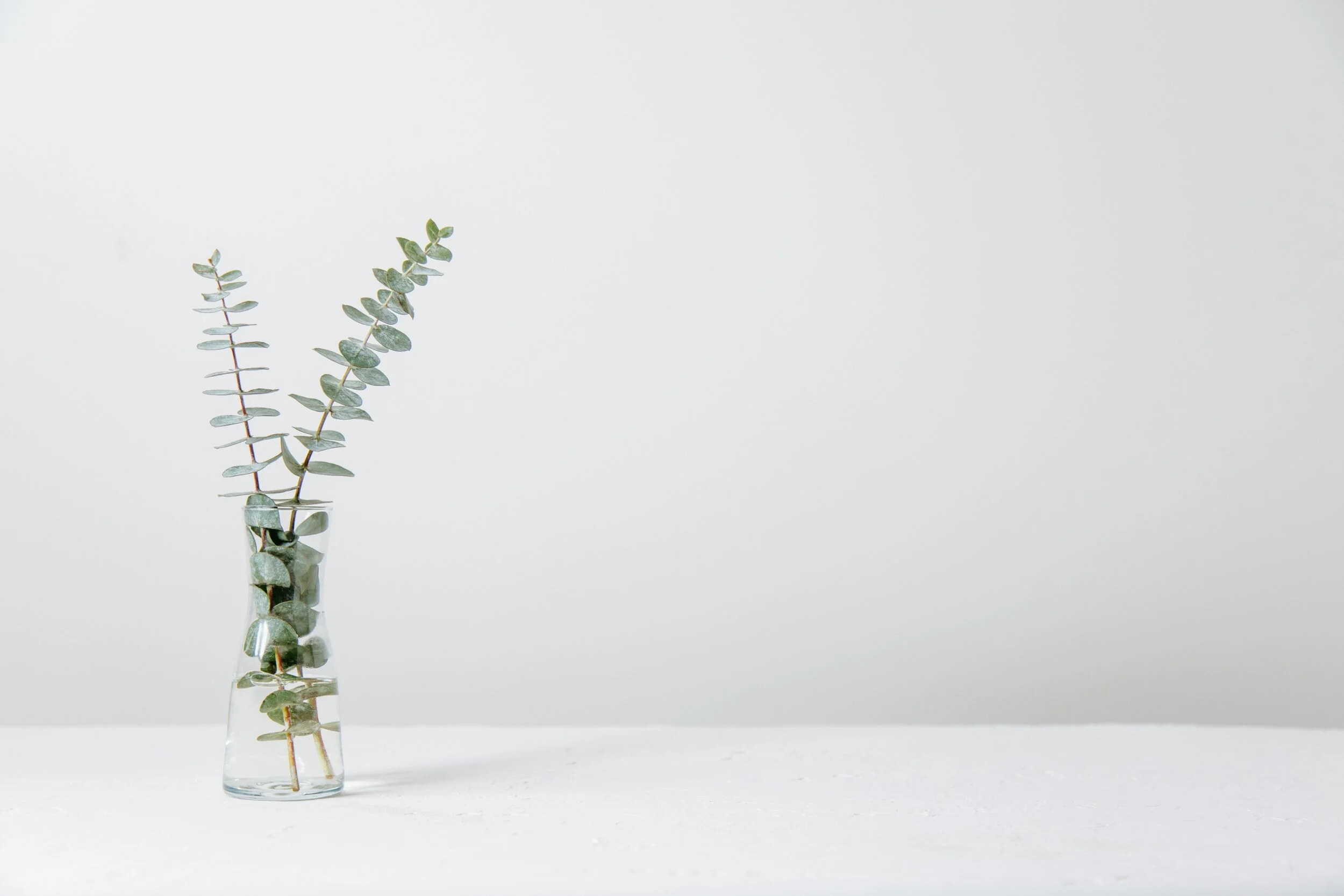"Just tell me what to do."
It's one of the most common things I find my clients saying without - you know - actually saying. Sometimes it's a look in their eye, as they long for me to be the one to save them from the uncomfortable silence. Sometimes it's a subtle sense of frustration in their voice, as they recalibrate their expectations around what they thought therapy would be. And, of course, there are the clients that just lay everything out in front of me and ask: "So now what?"
Uncharted territory
While I’ve been hesitant to add more to the current conversation around Coronavirus for many reasons, not least that I am not an expert, and I am especially not an expert on the wide range of ways people from all walks of life are being affected, as I’ve taken call after call these past couple weeks, it has become clear that between layoffs, hiring freezes, and the great uncertainties of how to plan around so many unknowns, we could all use a few more words of hope and comfort as it relates to the future right now, especially those of whose careers are currently up in the air. While I have encouraged many who have been able to keep their jobs and work from home to use this time for more intentional planning and personal reflection, for many in the middle of a transition already this may simply not be a reality. And so I wanted to offer just a few thoughts that I hope will help some of you who are feeling the weight of a changing job market, even if they cannot necessarily speak perfectly to all.
Does your life have a mission statement?
Something I’ve been reflecting on quite a bit recently (yes, also in light of reading Designing Your Life), is my life’s “mission.” The thing that drives the choices I make in everything from my career to my free time, and I have to say, it never fails to be incredibly motivating every time I return to it.
In my Intentional Careering course, I have our exercises culminate into a final “career” mission statement, which serves as a guide to provide direction and inspiration, but is also flexible enough to apply to many potential roles (including the one you might currently be stuck in). I generally propose coming to one by putting together your personal strengths and unique gifts with a greater aim or goal.
But I’ve recently been taking it one level higher and more largely framing the mission of my life - a statement of intent that reflects my fundamental beliefs about the world, a framework under which my work and the rest of my life falls, and an idea that captures how I personally view the meaning of my life (for now, anyhow)…
Designing your life
I recently picked up a copy of Designing Your Life by Bill Burnett and Dave Evans - in part because it felt like a slightly more inspirational balance to some of my heavier reading in grad school, and in part because I thought it would be a helpful resource to eventually offer others or integrate into my lil’ career course.
I was excited to return to some of the exercises I had done throughout my whole quarterlife crisis, such as really intentionally outlining what my priorities were (i.e. work, relationships, health, spirituality…) and making sure they were in balance, but as I opened the book I found myself thinking: “Haven’t I done this already?”
Are you An optimist or pessimist? How changing negative thinking can significantly affect your happiness
Yes both optimists and pessimists alike have tended to earn bad reputations in different ways over time - from the Debbie Downer or cynical New Yorker scrooging through life, to the Pollyanna type that gets into trouble for being unrealistic and naive.
But when we dig a little deeper into the actual differences in mindset between more optimistic people and more pessimistic ones, we start to see how we, too, are constantly choosing between the subtle differences in these approaches in our everyday challenges and decisions, and just how tangible the effects of two very different perspectives can have on our greater lives.
Practicing compassion
“There are very, very, very many people in the world today who will not have had the kind of breakfast that you had. Many, many millions in the world today are hungry. It’s not your fault, but you woke up in a warm bed, you were able to have a shower, you put on clean clothes, and you are in a home that is warm in the winter.” - The Dalai Lama and Desmond Tutu, The Book of Joy
Puts things into perspective pretty quickly, doesn’t it? When I returned from Southeast Asia last year, everything was a blessing. The amount I wanted or “needed” diminished immensely; I was grateful simply to be born in a country where 3 meals a day and functional plumbing were conveniences we could afford to take for granted. But - not unexpectedly - over time this newfound sense of perspective faded, and keeping up with those around me started to take precedence once again.
How to set good goals
Whether it’s New Year’s or the middle of summer, or whether you’ve formally written them down or not, chances are you have more than a few goals in your life. And they’re incredibly important: they give us a sense of purpose and direction, they reflect our unique senses of identity, and they help us to grow and achieve tangible progress throughout life.
But not all goals are created equal.
What happens when you’re spiraling...
We’re all familiar with the idea of “spiraling” down, or out of control. Chances are you’ve been caught in the cycle more than once. No matter how hard you try, somehow you just keep sinking deeper and deeper into an infinite hole of rumination, negativity, anxiety or fear.
Well, as it turns out, “spiraling” is actually a pretty good description of what goes on in the emotional process, though it can be hard to detect the nuances when you’re smack in the middle of it.
Let’s break it down.
Perspectives on happiness
We wasted no time in diving deeper into some of the central questions and themes surrounding happiness and ongoing happiness research in Week 2 of Harvard’s “The Science and Application of Positive Psychology.”
While it may sound like a simple subject, let’s start with just a couple thought starters:
Are you happy? Are you happy “enough”? Are you as happy as you want to be?
If your definition of “success” was simply to be happy, how would you be doing?
Should happiness be the main goal at all? What about the Zen idea of “transcending” happiness, rather than maximizing it?
Positive psychology & what it means to flourish
I’ve spent the last several months pouring over research, trialing out various activities and “interventions,” and writing dozens of journal entries, papers and reflections in a graduate course called “The Science and Application of Positive Psychology” offered through Harvard.
Still in the midst of a quarter-life crisis and career change, I signed up for the class because I knew I wanted to pursue a path somewhere in this large and mushy arena they called “positive psychology.” I was also so energized by my yoga teacher training and recent explorations in self care, mindfulness and meditation, that I developed an insatiable desire to learn and understand all the science and theory that was out there behind it.
Embracing the Jungle Gym
“Sometimes it’s ok to just be on time.”
Have you ever stopped long enough to notice that for some reason we’re always in this huge rush? If we’re not rushing to get to the top of the ladder, we’re rushing to have kids and get them to piano, or rushing through yoga to check it off the list. It’s as if the narrative we’ve been told for so long to “get ahead” has birthed this silent pressure looming overhead, regardless of what we're doing. But the more we rush to fit “more” in, the less we’re actually present enough to enjoy any of it.
Super Bloom
Without the rain there’d be no rainbow, no flowers, no spring. And what an incredible reminder the thriving blossoms and brilliant colors of California’s super bloom have been of just that this year.
According to Snyder’s Hope Theory, the way we approach the roadblocks in our lives, and the way that we use “pathways thinking” - or the the ability to see multiple routes around a setback or what might sometimes feel like a brick wall - is critical to our sense of hope. While often frustrating (especially when out of our control) it is often these exact moments that usually grow us the most - when we’re required to jump just a little bit higher than we’re used to, stretch ourselves in a new area, or forge some new neural connection.
The Body Remembers
In the last class I took with internationally recognized yoga teacher Seane Corn, she said: “The body remembers everything.”
And, in fact, it’s actually pretty amazing. You can think back to a past romance and the butterflies come straight back. Or you can recall a former loss and that awful feeling in your pit of your stomach will still physically manifest. I often talk about muscle memory in my own classes as a form of building habits in our practice, but really, the body is remembering much more than just the physical position it’s in and the muscles that are engaged.
He Who Moves to California
One of the highlights of my past year was coming home to California. But, while a an escape from the long winters back East was a welcome change, it was far from the only reason.
According to Nobel prize-winning psychologist Daniel Kahneman, while we might expect climate to have a greater impact on well-being, overall life satisfaction as reported by people in California is actually no different than that of people in the Midwest. But Kahneman also suggests that one who has recently moved to California will respond quite differently.
Going With the Flow
“If, when swimming, you are caught in a strong current, it is fatal to resist. You must swim with it and gradually edge to the side. One who falls from a height with stiff limbs will break them, but if he relaxes like a cat he will fall safely. A building without “give” in its structure will easily collapse in storm or earthquake, and a car without the cushioning of tires and springs will soon come apart on the road.” - Alan Watts
Chasing Rainbows
Did you know that if you chase a rainbow, you’ll never actually be able to catch it? It’s an optical illusion based on your viewpoint - quite literally your perspective.
As you move closer, it will just keep getting farther away (I know, I’ve tried it!) And so, too, are many of our other “chases” in life. As we get close to reaching whatever we think will finally make us happy, we find that in our new location, our destination has only moved farther out. So we learn the hard way that the “pot of gold” at the end - things like money or achievements or whatever it may be - often lead to a never-ending cycle, and a never-ending chase.
On Being
When was the last time you watched the clouds? Perhaps you were a kid pointing out funny shapes, and perhaps even this has been lost on the next generation of iPhone-carrying tots. But I mean have you ever really, seriously taken enough time to gaze up and notice just how huge and majestic those big puffs of paint looming overhead every single day can truly be?
What is Positive Psychology, And Why Am I Studying It?
Burnout. Anxiety. Quarter life crises. These aren’t just the challenges I’ve faced over the past few years, but they’ve also been the problems that have slowly begun to define our generation. Many of us have worked tirelessly toward dream jobs only to wrap our entire identities up in our work, internalized productivity so much that compromising even our self care routine is guilt-inducing, and watched countless others “successfully” juggle side hustles, passion projects, exotic trips, and daily salt baths across social media.























